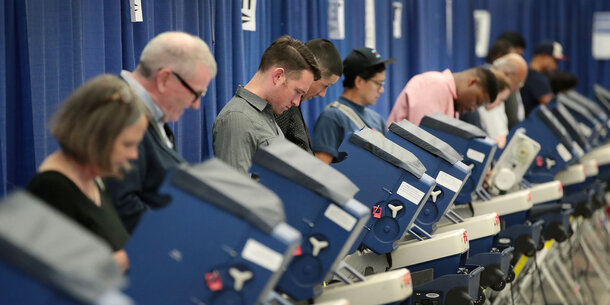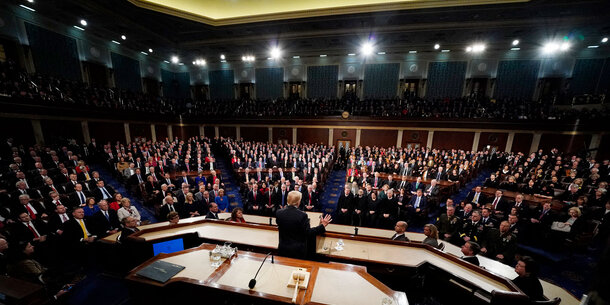Court
Arizona Court of Appeals
Status
Decided
Summary
When a voter submits an early ballot in Arizona, the voter signs an affidavit on the envelope of their ballot. In a process known as signature-matching, Arizona election officials — like election officials in 30 other states — verify the ballot by comparing the voter’s affidavit signature with the voter’s prior signatures on election documents like early ballots, early ballot request forms, or polling place signature rosters. The more signatures election officials can use to compare, the more accurate the process is.
On behalf of nine current and former election officials, the Brennan Center and co-counsel Patterson Belknap Webb & Tyler and Dentons filed a friend-of-the-court brief to support Arizona’s signature-matching process. Based on election officials’ experiences, the brief argues that restricting signature-matching to just a few documents in a voter’s record would ignore Arizona law, burden election officials, and increase the risk that lawful votes are not counted.
Background
The Arizona Free Enterprise Club (AFEC), an organization that advocates for voting restrictions, sued Arizona’s secretary of state seeking to limit the signatures clerks can use to verify absentee ballots in the signature-matching process. In Arizona Free Enterprise Club v. Fontes, AFEC argues that Arizona law limits officials to just a few documents that are used to update a voter’s registration.
The secretary of state and intervenor Mi Familia Vota argue that Arizona Free Enterprise Club has ignored the language and history of Arizona’s signature-matching laws. A state trial court rejected Arizona Free Enterprise Club’s position, and the plaintiffs appealed to the state’s intermediate appellate court.
Our brief
This friend-of-the-court brief reflects the perspective of nine officials, including five officials from Arizona counties, two former secretaries of state, and two officials from counties in other states, who have collectively overseen the processing of millions of mail ballots. The brief explains how the secretary of state’s policy of comparing a voter’s signature with any signature in a voter’s registration record better reflects best practices in election administration.
First, the brief explains that the secretary of state’s policy reflects an expert consensus: The more sample signatures election staff have available to compare, the more accurate a signature-matching process is. A person’s signature can vary over time. And some voters face a higher risk of their signatures appearing inconsistent, including voters who are young, who are elderly, who have disabilities, or whose primary language is not English.
Second, having fewer signatures to compare can burden election officials. With fewer signatures to compare and many ballots arriving before or on Election Day, election officials could be faced with a flood of signature mismatches to resolve in just a few days after an election. That would make it harder to process mail-in ballots—delaying election results and potentially disenfranchising voters.
Third, most other states that verify mail-in ballots through a signature-matching process compare a voter’s ballot signature with a range of documents, not just those used to update a voter’s registration. AFEC’s attempt to limit officials to comparing signatures with just a few documents would make Arizona an outlier.
Fourth, the plaintiff’s claims overlook the intent of the Arizona legislature. In 2019, the legislature amended Arizona law to direct election officials to consult a voter’s entire registration record to verify a mail-in ballot signature. The next year, the secretary of state issued guidance to that effect. In 2024, the legislature amended the law again to direct election officials to consult the secretary’s guidance.
Case updates
November 20, 2024: Amicus Brief: Nine current and former elections officials, represented by the Brennan Center, co-counsel Patterson Belknap Webb & Tyler and Dentons, filed an amicus brief in support of Arizona’s signature-matching policy. Amicus brief.
March 10, 2025: Case paused: The Arizona Court of Appeals stayed the case after the rulemaking process for the state Election Procedures Manual was challenged in another case. This case resumed in June 2025.
August 27, 2025: Case decided: The Arizona Court of Appeals concluded that the plaintiffs lacked standing to sue, ultimately leaving the state’s signature-matching policy intact. Opinion.


